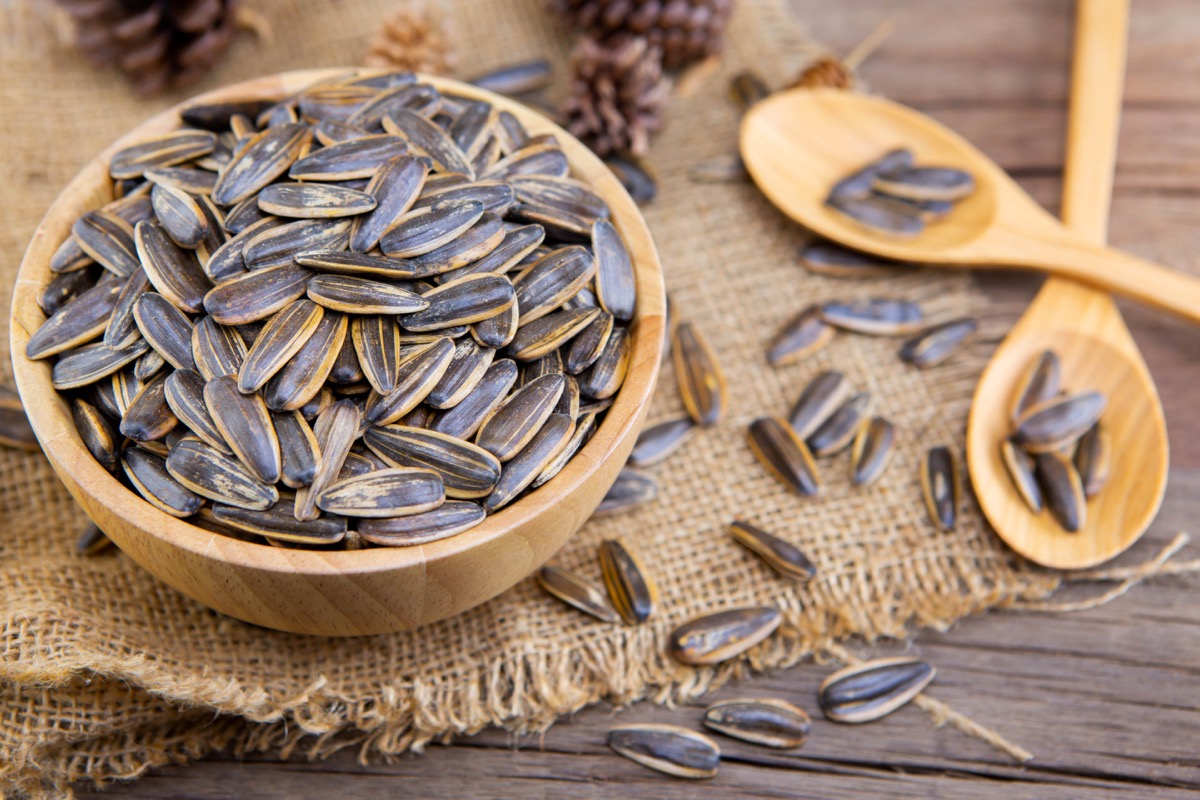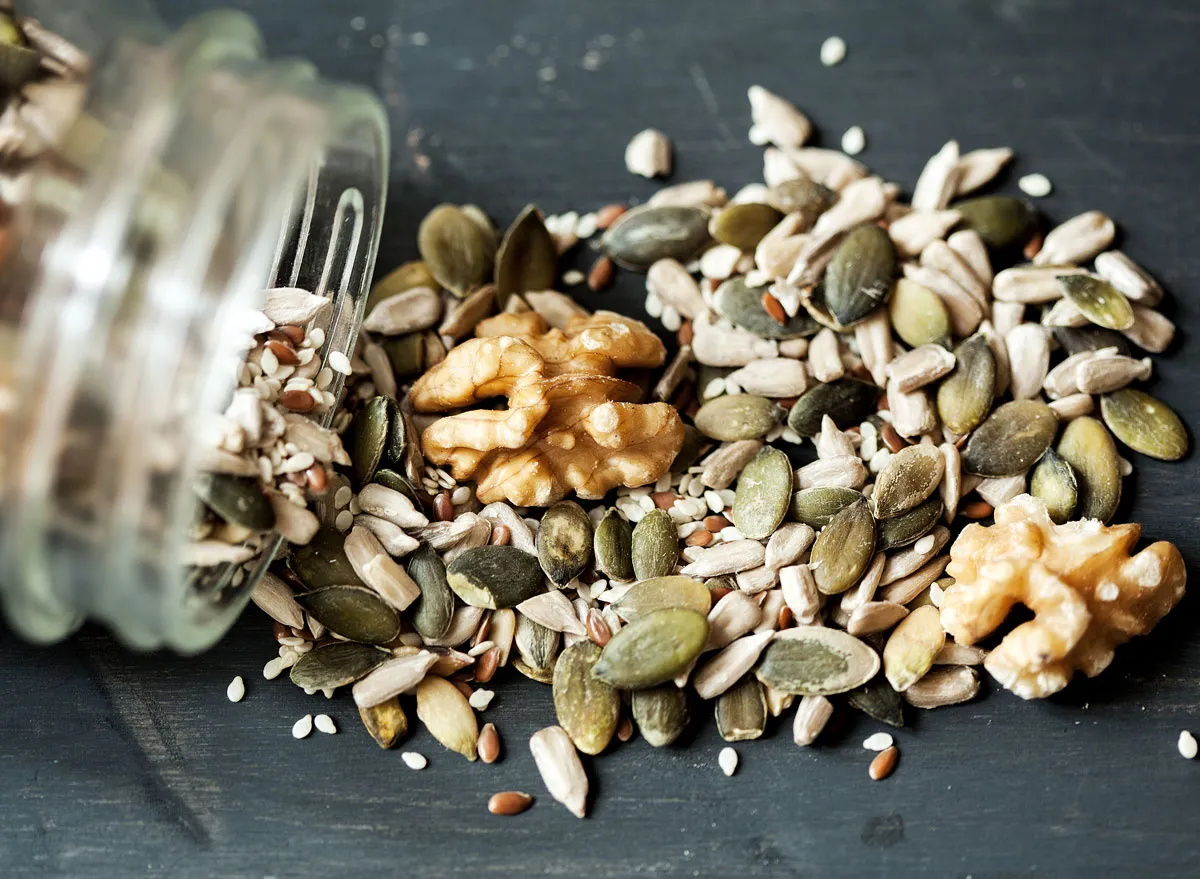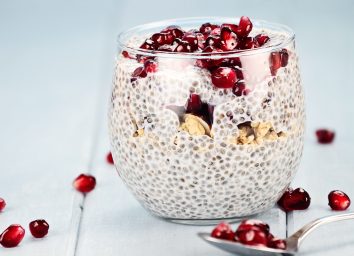One Major Effect of Eating Sunflower Seeds, Says Science

Whether you toss them into a trail mix and enjoy them as a snack or sprinkle them on top of a salad, there are many flavorful ways you can incorporate sunflower seeds into your diet.
The nutty seed provides a great source of healthy fats, protein, and even fiber. It's also packed in various vitamins and minerals, such as vitamin E, iron, and manganese. The nutrient-rich seed is known to provide a host of health benefits, including reducing the risk of cardiovascular disease.
One of the major risk factors in heart disease is hypertension, or high blood pressure, as it can lead to cardiac-related events such as heart attack and stroke. As it turns out, sunflower seeds may help you keep your blood pressure levels in check.

In a previous article about the dangerous side effects of high blood pressure, Cedrina Calder, MD, MSPH, and member of our medical expert board says, "too much pressure can damage the blood vessels that supply blood to the heart and cause a heart attack. An increase in pressure can also make the heart work harder to pump and lead to heart failure."
She also added that high blood pressure can damage the blood vessels that supply blood to the brain, which can ultimately cause blood clots to form and cause a stroke. The blood vessels could also tear as a result of having too high blood pressure levels, which could also result in a stroke.
Sunflower seeds contain an enzyme that stops blood vessels from constricting, which in part, may help the vessels relax and lower blood pressure levels. In addition, the seeds contain magnesium, a mineral that's known to lower blood pressure.
If you're not a fan of how crunchy sunflower seeds are, or they hurt your teeth to chew, you can try sunflower butter. Don't miss 10 Nut and Seed Butters—Ranked by Protein for ideas on how you can eat other nuts and seeds in a smoother (and creamier) fashion! Then, be sure to sign up for our newsletter for even more healthy tips.








